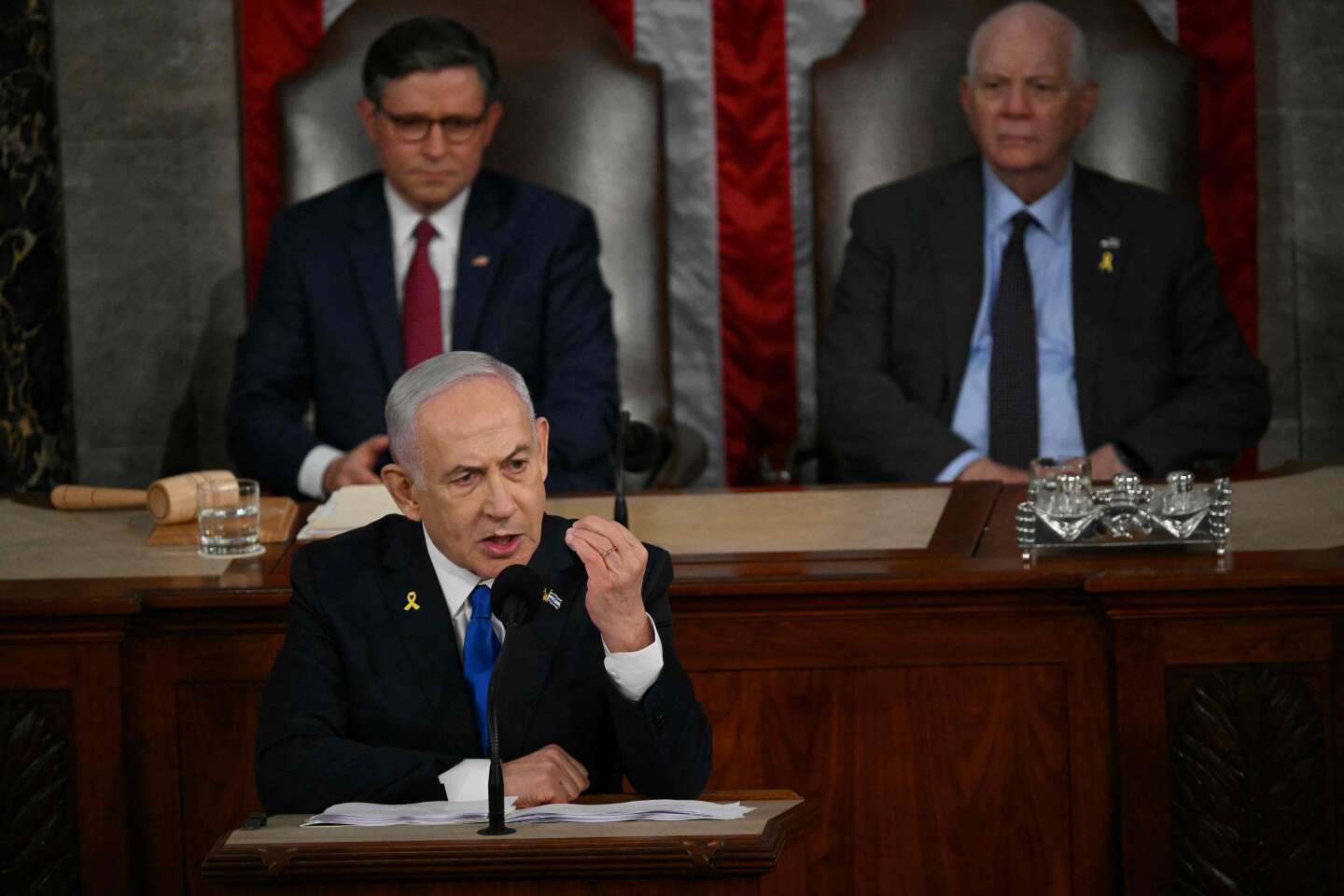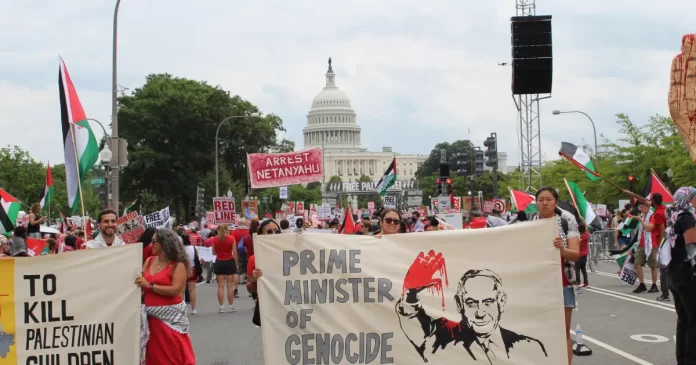Facebook Twitter (X) Instagram Somali Magazine - People's Magazine
Political tensions escalated at the U.S. Capitol as protesters gathered in anticipation of former Israeli Prime Minister Benjamin Netanyahu’s address to Congress. The contentious speech sparked debates over its accuracy, implications for foreign relations, and the delicate balance between democracy and diplomacy.
Thousands of demonstrators assembled outside the Capitol building hours before Netanyahu’s scheduled address. The protests drew a diverse crowd, including activists, political groups, and concerned citizens, all voicing their perspectives on Netanyahu’s visit. Many carried placards and banners with messages critiquing Netanyahu’s policies, particularly regarding Israeli-Palestinian relations, and expressing concerns over potential misrepresentations in his speech.
Debates on Accuracy of Netanyahu’s Address
Netanyahu’s address was anticipated to touch on critical issues affecting U.S.-Israel relations, including security concerns and geopolitical strategies in the Middle East. Critics, however, voiced apprehensions about the accuracy of Netanyahu’s statements, questioning whether his portrayal of regional threats and political dynamics would align with the facts on the ground.
Political analysts noted that Netanyahu’s speech could significantly influence U.S. foreign policy, potentially swaying opinions within Congress on key issues such as military aid, diplomatic support, and economic sanctions. The former Prime Minister’s strong stance on Iran’s nuclear program, in particular, was expected to be a focal point of contention.

Balancing Democracy and Diplomacy
The protests underscored the ongoing debate about the intersection of democratic principles and diplomatic relations. Supporters of Netanyahu argued that his perspective is vital for understanding the security challenges faced by Israel, a key U.S. ally. They emphasized the importance of a unified front against common threats, such as terrorism and nuclear proliferation.
Opponents, however, contended that Netanyahu’s policies have often undermined democratic values, pointing to issues such as settlement expansion and treatment of Palestinian communities. They argued that U.S. foreign policy should reflect a balanced approach, prioritizing human rights and justice alongside strategic alliances.
Reactions to Netanyahu’s Address from Congress
Inside the Capitol, members of Congress prepared for Netanyahu’s address with a mix of anticipation and skepticism. Lawmakers from both parties expressed a range of opinions, highlighting the divisive nature of Netanyahu’s visit. Some praised his leadership and insights, while others criticized his approach and raised concerns about the potential consequences for U.S.-Middle East relations.
Conclusion
As Netanyahu took the podium, the atmosphere both inside and outside the Capitol was charged with tension. The former Prime Minister’s speech, and the surrounding protests, served as a poignant reminder of the complexities inherent in international diplomacy and the enduring impact of political discourse on global relations.
The outcome of Netanyahu’s address and the subsequent reactions from Congress and the public will likely shape the future trajectory of U.S.-Israel relations, influencing policy decisions and diplomatic strategies in the months and years to come.

